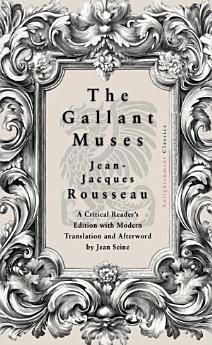The Gallant Muses
About this ebook
This professional translation delivers scholarly depth with amplifying materials. This Reader's Edition includes an illuminating afterword tracing Rousseau's intellectual relationship with Diderot, Voltaire and his reception by Nietzsche, revealing the fascinating dialogue between the period's most influential minds. A comprehensive timeline connects the major events of Rousseau's life with world events, an glossary of Enlightenment terminology frames Rousseau's debates in the intellectual milieu of his day, and a detailed index provides an authoritative guide to his complete writings.
"Les Muses galantes" is one of Rousseau's earliest and most ambitious musical compositions, marking his first foray into operatic theater. This production showcases Rousseau's talents as a composer and librettist, reflecting his engagement with eighteenth-century French artistic culture. Following the popular French theatrical convention of the time, the work's format as an opera-ballet combines dramatic narrative with elaborate dance sequences and musical interludes. Despite being composed in 1743, the work gained public attention through several notable performances that established Rousseau's reputation in Parisian musical circles.
The opera's reception history illustrates Rousseau's complex relationship with the established musical hierarchy of his era. It was performed several times with considerable success: in 1745, before the Duke of Richelieu, who intended it for the court; in 1747, at the Opéra Théâtre; and in 1761, before the Prince of Conti. These performances positioned Rousseau within the prestigious circles of French aristocratic patronage and demonstrated his ability to compose works suitable for the highest levels of society. However, the work also generated significant professional tension, particularly with the prominent composer Jean-Philippe Rameau. Rameau developed a lasting animosity toward Rousseau after hearing excerpts performed at La Pouplinière's residence. This conflict foreshadowed the broader intellectual and artistic disputes that would characterize Rousseau's later career, revealing how his musical ambitions intersected with the competitive and often contentious world of Enlightenment cultural politics.
Ratings and reviews
- Flag inappropriate











